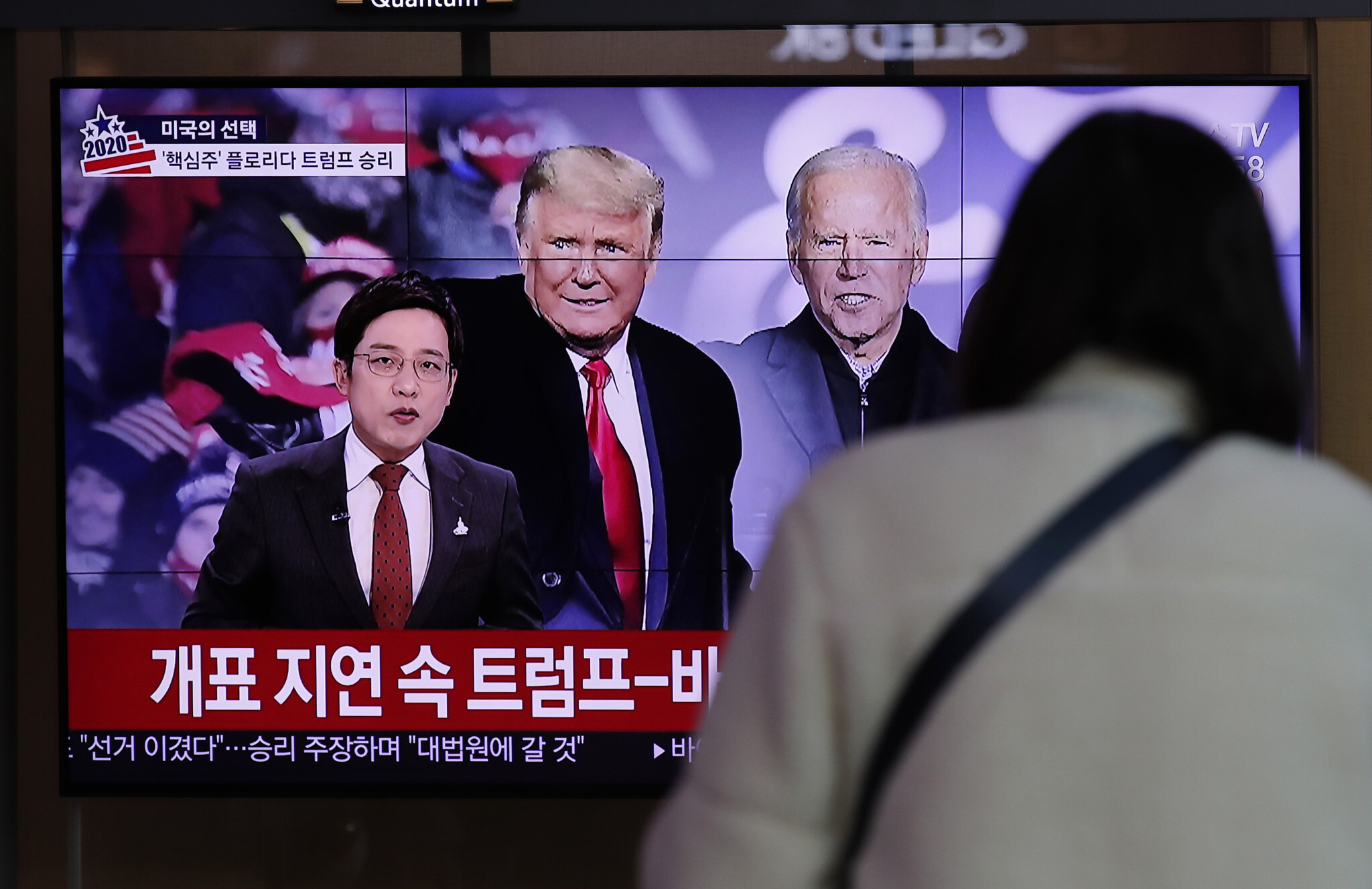One of the most consequential foreign policies to be implemented by Joe Biden, who was inaugurated this month, concerns what kind of policy he will choose for the Korean Peninsula.
The Korean Peninsula consists of two countries, one of which has been a strategic US partner for decades and another that poses one of the most serious nuclear threats in the world. It will therefore be imperative to keep a close eye on Biden’s North Korea policy, which will inevitably be a tricky balancing act given how bilateral relations have improved under Trump on the one hand but also keeping in mind North Korea’s continued nuclear proliferation on the other.
Although no concrete results were obtained from the negotiations under Trump, some parties think that only he can cope with the aggressive and threatening attitudes of North Korea, while other parties argue that, as during the Obama administration, it would be better to follow the “strategic patience” policy of that era more comprehensively. Given the high stakes and many failed previous attempts at solving the “North Korea” problem, it will be one of Biden’s key policy decisions in 2021.
Trump and North Korea
With Trump’s “America First” policy, we saw a very different approach to the Korean peninsula, as well as in other regions. North Korea suspended all nuclear and intercontinental ballistic missile tests after many meetings held with the Trump administration. In return, Trump promised to give North Korea a security guarantee. However, North Korea later stated that there was no progress in the negotiations with the United States on the easing of sanctions, and later announced they had completed another “crucial test” at the Sohae long-range rocket launch site. To make matters worse, this past October, North Korea showcased its largest intercontinental ballistic missile ever during its military parade. Progress has been made regarding bilateral relations between US-DPRK, but, clearly, more must be done on the denuclearization front.
Trump and South Korea
To give up its nukes, North Korea had asked the US to make a security guarantee to eliminate the military threat it posed, but, according to Choi Kang, an expert at the South Korean-based Asan Institute, this is essentially a demand that means the withdrawal of US troops from South Korea and an end to the ROK-US alliance.
Besides, there have been some tensions between the US and South Korea under Trump, especially in the last 18 months. The Trump administration’s demand last year for Seoul to increase its military cost-sharing contribution by 400 percent raises questions about the continuity of the US-ROK alliance and how reliable it actually is.
Biden’s Policy
Independent of a specific Korea policy, it’s worth mentioning that Biden has promised to move away from Trump’s “America First” approach and to strengthen relations with US allies again. Based on this, it is expected that diplomacy will be at the forefront in relations with both South Korea and North Korea and a healthy dialogue will be attempted. In this regard, Biden had a 14-minute phone conversation with President Moon Jae-in last month and said the US will “firmly maintain our defense commitment to South Korea and cooperate closely to resolve the North Korea nuclear issue,” extolling South Korea as the regional “lynchpin of security and prosperity,” according to South Korea’s presidential office.
Many expect that Biden might follow the same Korea policy as the Obama Administration did–so-called “strategic patience.” However, based on previous experience, it seems that this policy is ineffective in dealing with Kim Jong-un’s aggressive attitudes.
A critical perspective on Biden
According to Evans Revere, a member of the Council on Foreign Relations and former State Department official with extensive experience in negotiations with North Korea: “Biden prefers bottom-up diplomacy, unlike President Trump, and that will make it difficult for both sides to enter into real nuclear negotiations, as no North Korean official except Kim Jong-un has the authority to discuss nuclear issues.”
Revere also claimed that North Korea could test a nuclear or long-range ballistic missile to send a powerful message to the new President of the United States in the coming weeks.
Also, Andrei Lankov, a professor of North Korean studies at Kookmin University in Seoul, said that “unlike former president Barack Obama, Trump held direct talks with North Korea — he met with Kim three times to discuss nuclear disarmament — and there was a slim but real chance of a diplomatic deal with Pyongyang if Trump had won a second term. But Biden is just going to kick the can down the road.”
On the other hand, South Korean Foreign Minister Kang Kyung-wha has expressed that Biden’s victory would not necessarily mean a return to the Obama administration’s “strategic patience”, thereby inferring Seoul’s preference for another approach.
Although Trump met three times directly with Kim Jong-un to discuss nuclear disarmament, the results of his policies are lacking. However, given the improvement in overall US-DPRK relations, it won’t just be the Biden Administration walking a tightrope but also Kim Jong Un. Any miscalculation in policy by North Korea could put bilateral relations back to 2017 levels and erase any kind of progress made over the past two years.
Whatever the strategy, it will be important for Biden’s policy to be persuasive for both sides of the peninsula. Even though it’s important to improve US-DPRK relations, it is just as, if not more, important to keep the US-ROK alliance strong and reliable.
Merve Altun via. Peninsula Report





